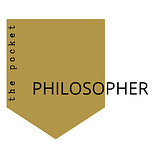It’s not a matter of the right choice or the wrong choice, but simply that we are often presented with a dilemma about bringing together the inspiration of the teachings with what they mean to us on the spot. There is a perplexing tension between our aspirations and the reality of feeling tired, hungry, stressed-out, afraid, bored, angry, or whatever we experience in any given moment of our life.
—Pema Chodron (lionsroar)
Lovers of Wisdom,
Welcome to today’s installment of TPP. We’re jumping right in.
The above quote perfectly captures today’s theme: Life presents us—often—with challenges. Even more often, these challenges are in the form of tension. The tension between our aspirations and the reality of our emotions like fear, stress, or exhaustion.
And that’s the moment. That’s the moment we are curious about this week.
I’ve noticed that the typical Anger and Anxiety many of us feel is a response to that tension—between what we have and what we think we need. Between what we want to give, and what we have to offer. Between how we want to be, and how we respond in reality.
I think perplexing is the perfect word to describe this all-too-human phenomenon.
All this week we’re analyzing the perspective on anger and aggression posited by Pema Chodron in her stunning teaching based on the 8th Century Wisdom Text by Shantideva titled, The Way of the Bodhisattva.
Pema, Shantideva, and the original text itself are all worth their own study, but beyond the scope of this week.
Right now we’re interested in the philosophical work of assessing Pema’s analysis.
Riffing off of Pema’s quote above, I find this to be absolutely true in my own life. I’ve noticed that at their core, much of my anxious and angry responses stem from the same root causes.
Sometimes, it seems, the socially appropriate response is some form of self-depreciating anxiety. In other times, it’s insecure projections of power via anger.
Either way, at their core is this perplexing experiencing we all have—feeling one way and acting another. Feeling scared and becoming angry. Feeling overwhelmed and falling into anxiety.
But then we approach an ancient text like the one from Shantideva, we encounter a teaching like this one from Pema, and we learn two important things for the journey:
These emotions aren’t anything to be ashamed of. In fact, they’re universal. And each of us is challenged by them in our own way, in our own time.
This challenge, however, is asking the same thing of each of us—how will we train ourselves to respond to challenge when we are afraid, vulnerable, uncertain, and out of control?
This question is the premise of both Shantideva’s writings and Pema’s teaching.
Because when we feel vulnerable and uncertain we seek the familiar. It’s an addiction—we think that this time, this impulsive response will bring us the result we seek, when in fact it will only enhance the gravity of our vulnerability and prolong the time we must deal with its consequences.
So the natural question becomes, how do we move through this perplexing paradox? If fear, vulnerability, and uncertainty are inevitable challenges, what am I to do?
Personally, I would say that no one has provided me the tools I need to manage such a crisis—the mundane crisis of the everyday. Therefore, I have stacked an insurmountable number of over reactions upon my life, simply from a place of well-meaning ignorance.
Can you relate?
I’ve learned how to financially invest, start a family, manage a career, cultivate relationships—but no one has shared the tools of reacting to the perplexities of uncertainty and fear.
Instead, I’ve been asked to trust this entity or that organization. To ignore, repress, or trust it away. To make it happen, find a solution, or impose my will (they call it leadership.)
Can you relate?
How are we supposed to deal with life’s perplexing challenges? How are we to respond with wisdom and understanding to the loss of a loved one, the loss of a career, a health scare, a huge success, a massive public failure?
We’ll join Pema tomorrow where she offers the most important tool for our new kit.
Until then my friends, you won’t want to miss it.
Matt
References
Lionsroar: https://www.lionsroar.com/pema-chodrons-three-methods-for-working-with-chaos/















Share this post